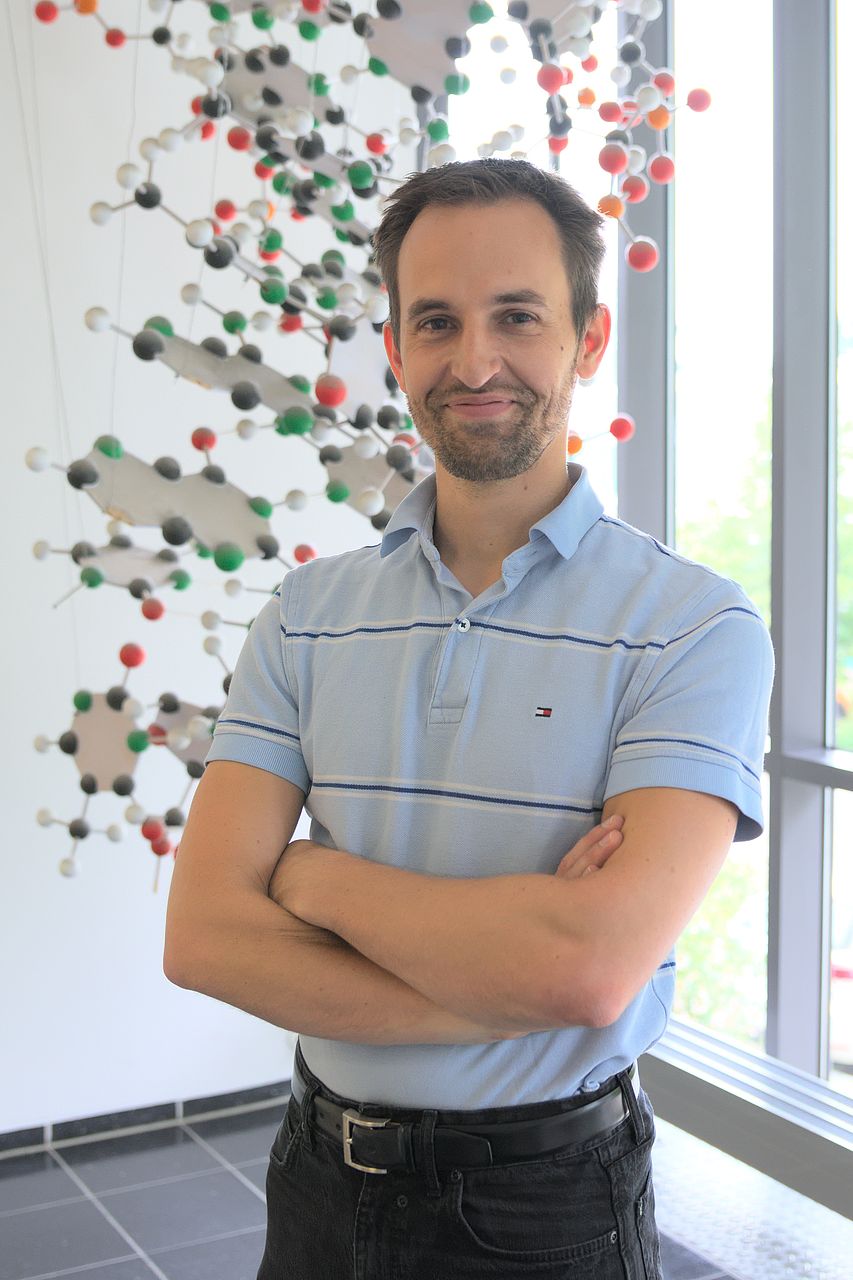Dr. Andreas Neueder
Dr. Andreas Neueder is a postdoctoral fellow in the Department of Neurology (Head: Prof. Albert Ludolph, PI: Prof. Bernhard Landwehrmeyer). His main interest is RNA based molecular mechanism leading to neurodegeneration, in particular RNA toxicity in CAG repeat disorders.
Shorter versions of huntingtin (HTT), the disease-causing gene in Huntington's disease (HD), have been detected in post-mortem brains from HD patients and mouse models of HD and a considerable amount of research highlights that these fragments play a crucial role in disease pathogenesis. Despite a huge amount of work, the exact nature of the fragments and the responsible proteases remain largely unknown. During his postdoc in the lab of Prof. Gillian Bates in London (KCL and UCL, London, UK), he could show for the first time that the smallest and most toxic fragment of HTT (exon 1 HTT) is produced by incomplete splicing of the HTT pre-mRNA and not through the action of proteases.
Dr. Neueder continues to investigate this phenomenon using a combination of molecular biology and systems biology approaches. The HD clinics in Ulm with its very large patient cohort allows for powerful analysis of clinical measures concomitantly with molecular readouts. To this end, Dr. Neueder generates and analyses 'big data' in the context of HD. These datasets come from various biological sources and are analysed using advanced network-based bioinformatics to evaluate and integrate the 'omics datasets.

